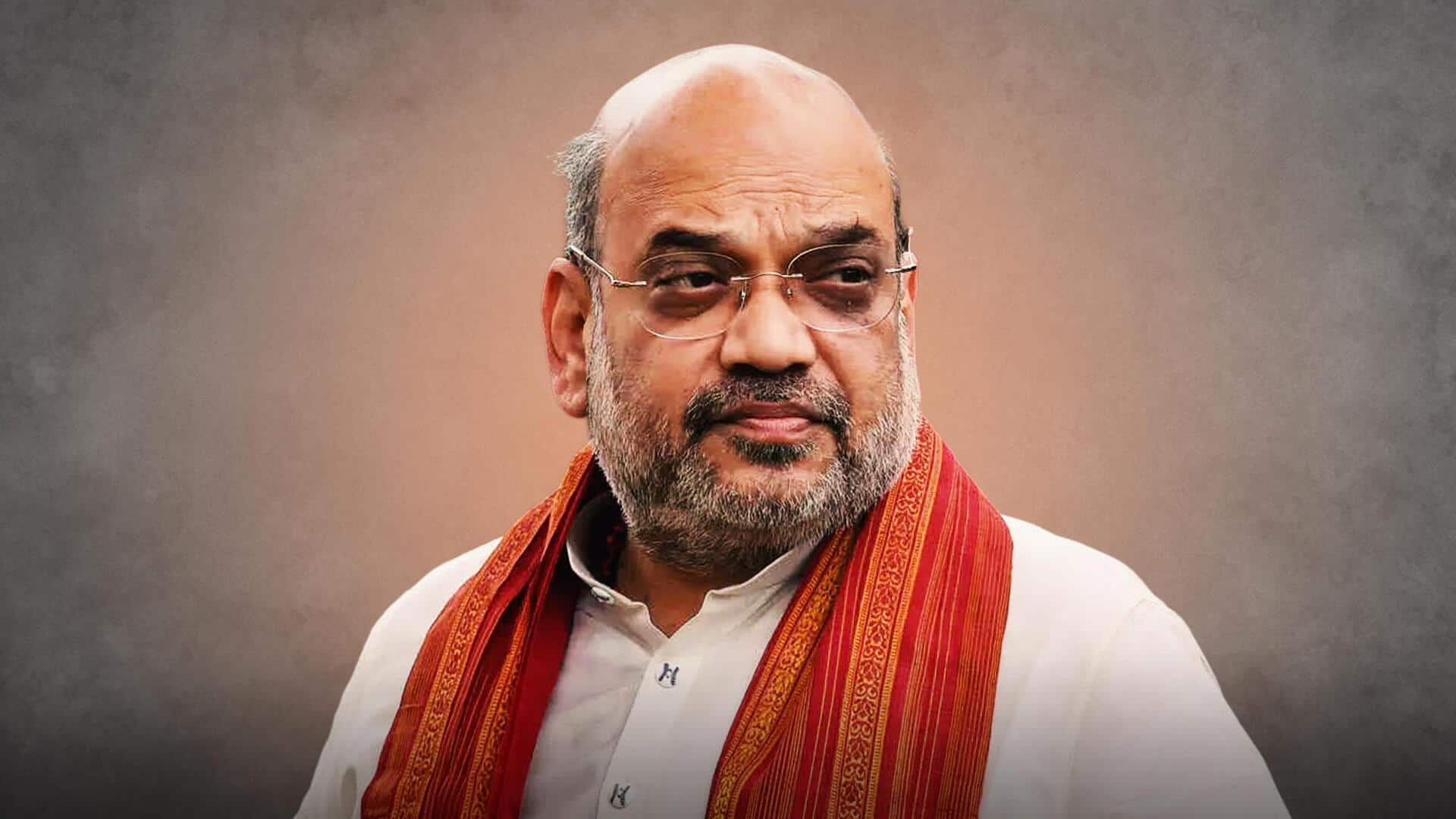'CAA will never be taken back': Amit Shah defends law
What's the story
Union Home Minister Amit Shah has asserted that the Citizenship Amendment Act (CAA) will never be repealed and that the government will never compromise on it.
The rules of the controversial CAA were notified earlier this week on the cusp of the announcement of the Lok Sabha elections.
The CAA seeks to grant citizenship to Hindus, Jains, Christians, Sikhs, Buddhists, and Parsis who migrated from Bangladesh, Pakistan, and Afghanistan to India on or before December 31, 2014.
Context
Why does this story matter?
The CAA's implementation has given rise to celebrations on one hand and calls for a stay on the other, with many calling it a communal law.
Before the CAA, India's citizenship law did not include religion when determining eligibility for an Indian passport.
All non-Indians seeking naturalization had to demonstrate that they were in India legally.
This changes with the CAA, making it the first time in independent India's history that a religion has become a determinant of citizenship.
Details
CAA aims to grant citizenship to persecuted non-Muslim migrants: Shah
Speaking to ANI, Shah denied the claim that the CAA is anti-Muslim.
"Muslims from anywhere in the world can seek Indian citizenship under Section 6 of the Citizenship Act...which deals with citizenship by naturalization," the Home Ministry said.
Naturalization is the process by which a foreign citizen becomes a citizen of a new country.
It usually applies to those who have entered the country legally, such as through political asylum or after living there for a set amount of time.
CAA unconstitutional?
CAA will never be rolled back, says Shah
He also dismissed claims that the CAA is unconstitutional and does not violate Article 14.
"There is a clear, reasonable classification here. This is a law for those who, due to partition, remained in Afghanistan, Pakistan, and Bangladesh and were facing religious persecution and decided to come to India," he explained.
When asked about the opposition's promise to abolish the act if elected, Shah stated that even the opposition is aware of its slim odds of victory.
Opposition attack
Opposition accused of appeasement politics and misleading public
On Monday, opposition leaders, including Congress MP Shashi Tharoor, said they would challenge the CAA in the Supreme Court.
Tharoor affirmed that if the Indian National Developmental Inclusive Alliance (INDIA)—led by the Congress Party—comes to power, it will repeal the CAA.
The Indian Union Muslim League has also moved the SC to stay the implementation of the CAA.
Since its passage in Parliament in 2019, the CAA has been the subject of intense debate, with the opposition calling it "discriminatory."
Documents needed
What documents are required to apply for citizenship under CAA
Applicants for Indian citizenship under the CAA can submit any nine documents, including a valid or expired passport, ID card, and land tenancy records, to prove they are an Afghanistan, Pakistan, or Bangladesh national.
Applicants can also submit any of the 20 documents, including a visa copy and immigration stamp upon arrival in India.
Certificates provided by an elected member of any rural or urban body proving they entered India on or before December 31, 2014, will also be accepted.
